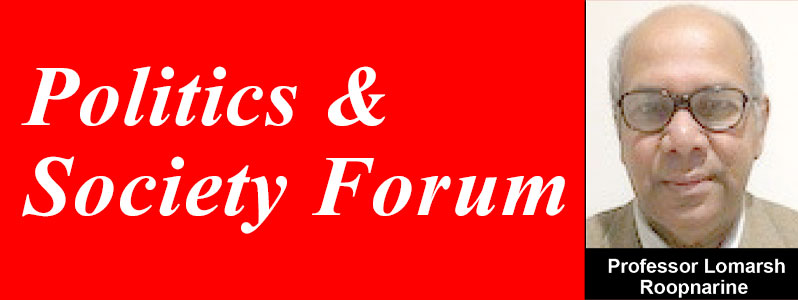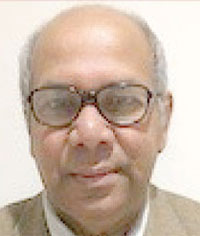IF you have been reading the dailies, watching the news, and listening to the commentators, you might have had a difficult time avoiding the reality that we have been on a journey of road carnage and wanton crime for too long. If you feel a sense of hopelessness that these twin issues are uncontrollable, you are not alone but correct, confirmed by the possibility that after reading this piece, someone, perhaps innocently, will bite the dust. What is equally unsettling is that the marketplace of ideas through the medium of community meetings, conferences, and anti-crime recommendations on how to tackle the above challenges have not made a perceptible difference. On the surface, the initiatives for a better society, are like pouring water on a duck’s back. They just slide off.
Those who are oiling the wheels of power within the protection and law enforcement agencies would not want to create this negative image for themselves. They would prefer a soft feather in their caps, tickling their heads, that public confidence is on their side. What has resonated instead is that the available statistics do not only provide an idea, but the graphic scenes of human wastage have sent a clarion message that road carnage and crime have engulfed the country, reaching deplorable standards.
The public was not ‘discombobulated’, therefore, when Traffic Chief Senior Superintendent Ramesh Ashram declared Guyana had experienced a 37 per cent increase in road fatalities of 125 in 2020 as compared to 2019 when the country recorded 94 deaths. Crime statistics do not provide any solace either. According to the U. S. Department of State, the murder rate in Guyana ranges from 15 to 18 per 100,000 which is the fourth highest murder rate in South America and three times higher than the U.S. Other sources place the murder rate as high as 20 per 100,000 making Guyana one of the most homicidal countries in the world.
Regrettably, road carnage, and crime will continue to snuff out the most important resources in our society – human beings. Medical costs are high so are stress and trauma on families, communities, and the economy. Social service support is stymied by limited resources. Also, some decisions by the courts have raised eyebrows. The dailies are teeming with such cases as ‘rapscallions waltz out of courts’ leaving onlookers with jaw-dropping expressions. This is the Stygian side of Guyana’s judicial system. Who will forget that the Supreme Court of Guyana ruled that 33 is not a majority of 65?
Continuous road carnage emanates from lawlessness, speeding, texting, obtaining driver’s licences under false grounds, driving under the influence, congestion, overcrowded vehicles, recklessness, tailgating, inexperienced driving, shabby police work, and poor road infrastructure. Crime is coterminous with the lack of positive livelihood opportunities and weaknesses in policy and policing which criminals have exploited effectively. Worse still is that crime thrives when there is a market for it, and there has not been a shortage of unscrupulous people who will exploit this underbelly of society.
The Government and police, of course, are cognisant of these problems bedeviling society and have launched a series of programmes, for example, the Intercept of Communications Act, to tackle carnage and crime as well as calling on the public to exercise and exude caution and care. This is a right move in the right direction since road carnage and crime are not a partisan problem but affect all. The unfortunate situation we find ourselves in is not about harbouring differences but rather about harnessing differences to provide suggestions to stamp out the twin evils of road carnage and crime. Boosting the morale and motivation of those who carry the badge of service and protection is of critical importance as well as the restoration of public confidence in our security forces.
While it is expected that the Government and police will shoulder the responsibility for providing safer roads and managing crime to acceptable levels, the citizens must be involved and must play a meaningful role such as rejecting being in overcrowded vehicles and reporting crime to law enforcement agencies. It should be incumbent on everyone’s part not to support illegal and underground activities such as wheeling and dealing with stolen items. Those who are smarting from crime-related activities ought to conjure up the will to report crime and their identity must be protected. It is advisable to follow that reliable adage that if you see something, say something. Unless the citizenry is wired to respect the laws that govern it, anything else would be a futile exercise to tackle road carnage and crime head-on. In the absence of the latter, and by the end of the day, what will happen is that the reduction of road fatalities and crime will depend largely on the police and Government. This is not a win-win situation that generally inject and instill confidence between police and public. We are in this together and we must act together. We must be involved in meaningful and safe ways and refrain from engaging in outbursts that might render ourselves vulnerable to further attacks from goons, miscreants and their backers, a licence to hurt. Support the police so that they can do their job. HAPPY HOLIDAYS! (lomarsh.roopnarine@jsums.edu).



.jpg)










